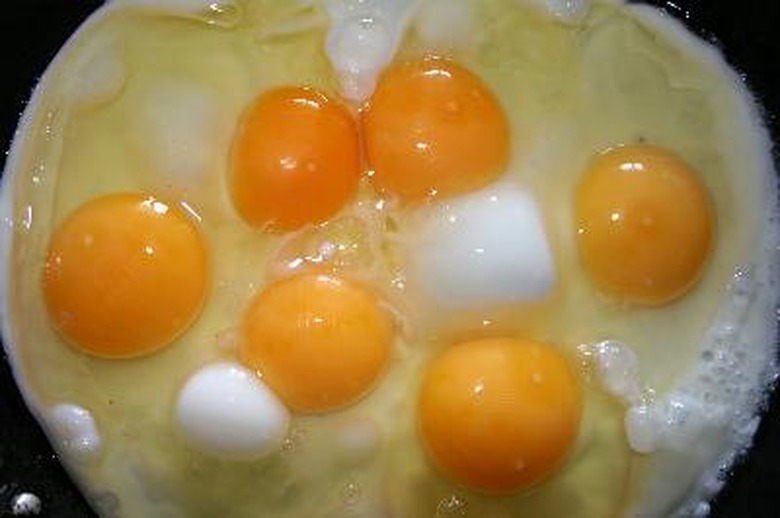How To Convert Celsius To Kilojoules
You know from experience that when the value on a thermometer indicating temperature increases, ambient conditions become warmer. When this value drops, ambient conditions become cooler. You're also likely aware that there are multiple common temperature scales in use to quantify this phenomenon precisely.
If changes in temperature in some way indicate a gain or loss of heat in the vicinity, is there some way to capture the correlation? That is, can a given change in temperature (say, in degrees Celsius, or °C) be correlated with a given gain or loss of heat – assuming "heat" is even a thing that can be precisely measured in physics?
Indeed, correlating changes in temperature with gains or losses of heat, in helpful heat units such as kilojoules (kJ), is possible – as long as you literally know what you are dealing with.
Temperature and Its Scales
Temperature and Its Scales
Temperature is a quantity measured by a device called a thermometer. It is mathematically derived from the average kinetic energy of particles (atoms and molecules) in a system, such as a closed container or room.
Kinetic energy is energy of motion. When tiny particles zip through the air, they collide with each other, and the collisions release heat. The faster the average speed of the particles in the system, the more they will collide and the more heat will be released, raising the measured temperature.
The SI unit of temperature is the Kelvin (K). This is not a degree and hence has no associated symbol, unlike the case with Celsius and Fahrenheit degrees. However, K and °C have the same magnitude in the sense that an increase of 1 K and an increase of 1 °C represent the same physical change. But the scales are offset such that °C = -273.15 K, and the minimum theoretical value of K is 0.
Additionally, (9/5)°C + 32 = °F.
Energy, Heat and Their Units
Energy, Heat and Their Units
You're no doubt familiar with the term calorie as one of the many ways to measure what the food you eat delivers to your system's cellular machinery. Some sources claim the calorie has units of energy; others say it takes units of heat. In fact, both assertions are true, as heat is one of various subtypes of the "official" – if rather elusive to pin down – quantity in physics known as energy.
While the calorie (cal) is the basis for most public conversation in the U.S. about the energy provided by foods, this is not the unit used in physics textbooks and journals. The standard international (SI) unit of energy, and therefore of heat, is the joule (J).
1 calorie = 4.18 J, but the "calorie" you see on food labels is actually a kilocalorie (kcal) or 1,000 true calories. Thus 1 "calorie" per nutrition labeling is actually 4,180 joules, or 4.18 kJ.
How Are Heat and Temperature Related?
You have seen how temperature relates to heat. But how was the size of "one degree" determined in the first place? People had to have a way of marking the spots on the temperature scale between "frozen" and "boiled away" and assigning numbers to these intervals.
As it happens, if you add a given amount of heat (Q) in joules to a system, or remove heat from that system, you can determine how much the system's temperature will change (∆T) in Celsius as long as you know the mass of the system (often a sample of water) m in grams and its specific heat c, which varies from substance to substance:
Q =mc(∆T)
For water, c = 1 cal/(g)(°C) = 4.186 J/(g)(°C).
**Example:** If you have a 1-liter sample of water, which has a mass of 1,000 g, how much energy in kJ is needed to warm the sample by 1 °C?
Q =mc(∆T) = (1,000 g)(4.186 J/g °C )(1 °C) = 4,186 = 4.186 kJ.
Recall that this is the amount of energy in a single "calorie" of food. This is strange when you consider that, say, 1 L of sweetened soda has about 400 times this amount, but the body handles "calories" far differently than a simple jar of water.
Cite This Article
MLA
Beck, Kevin. "How To Convert Celsius To Kilojoules" sciencing.com, https://www.sciencing.com/convert-celsius-kilojoules-7926543/. 21 December 2019.
APA
Beck, Kevin. (2019, December 21). How To Convert Celsius To Kilojoules. sciencing.com. Retrieved from https://www.sciencing.com/convert-celsius-kilojoules-7926543/
Chicago
Beck, Kevin. How To Convert Celsius To Kilojoules last modified March 24, 2022. https://www.sciencing.com/convert-celsius-kilojoules-7926543/
